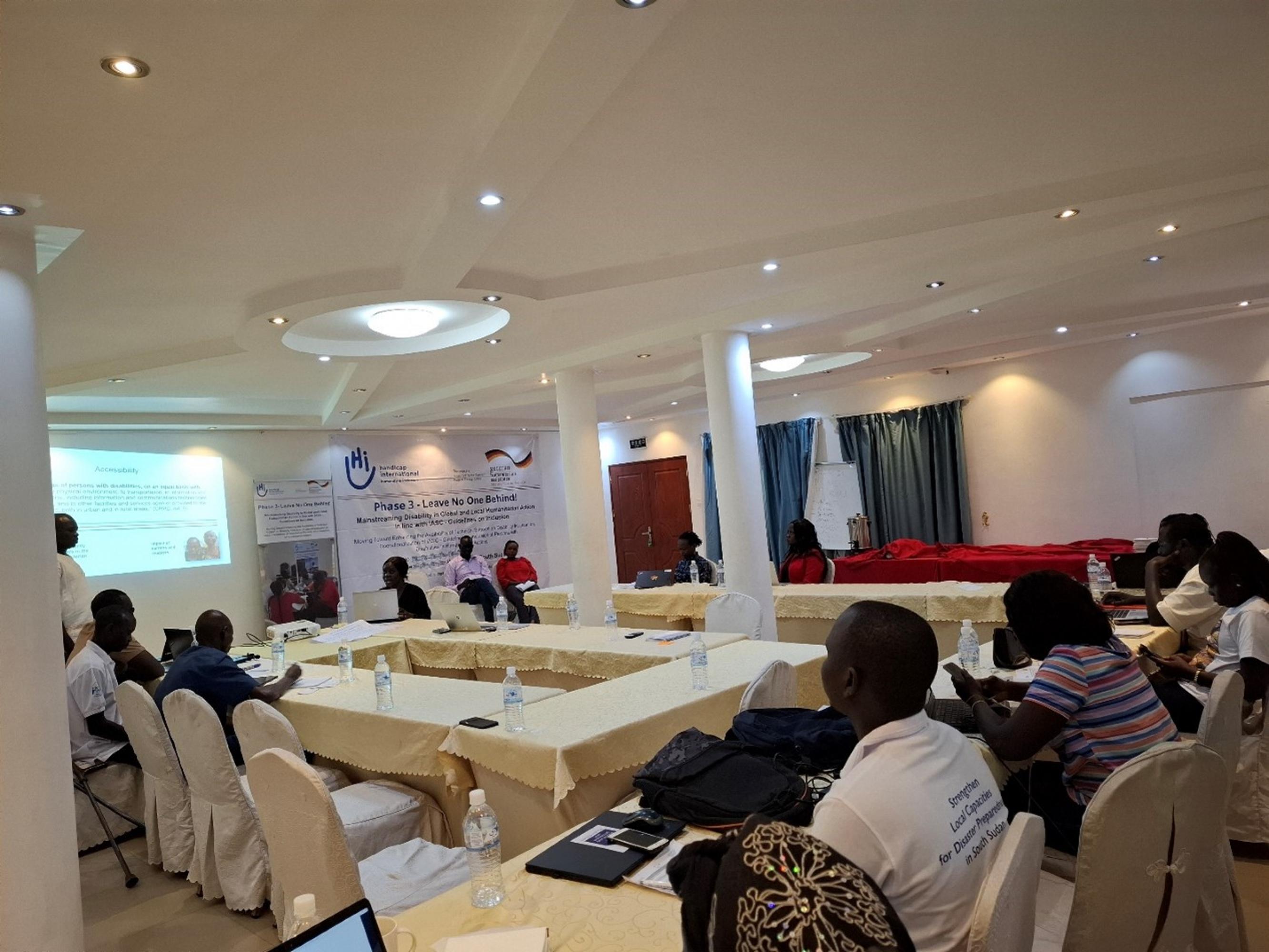Equipping Trainers for Inclusive Tomorrow
Kategorien
Capacity Building IASC-Guidelines Pilot Countries
© Obale Musa / HI
HI’s South Sudan team conducted its second Training of Trainers (ToT) workshop to members of technical support group on disability inclusion, at Juba Regency Hotel, from 26th to 28th June 2024. The objective of the training was to enhance the facilitation skills and techniques of the nominated inclusion focal points to train other humanitarian actors on disability-inclusive humanitarian action.
Participants
The three-day training drew 19 participants inclusive of two co-facilitators. These were drawn from five national Non-Governmental Organizations, two UN agency (UNFPA and IOM), two International Non-Governmental Organizational (CARE and Danish Refugees Council) and two Organization of Persons with Disabilities (South Sudan Association of Visually Impaired, SSAVI and South Sudan Association of Physically Impaired, SSAPI).
Training Content
The training was tailored based on the needs and interest of the focal points, and was using the Disability Reference Group (DRG) training modules on Introduction to Disability-Inclusive Humanitarian Action, freely available via our website.
The Organization of Persons with Disabilities (OPDs) co-facilitators introduced the module 1, introduction to concept of disability, intersectionality and barriers. They shared real-life experiences and cited contextualized examples of how intersecting factors make persons with disabilities vulnerable and how different barriers affect persons with disability from meaningful participation. They also supported the groups during adaptation of modules in different sectors and group discussions.
To enhance the moderation and facilitation skills of the focal points, each of them had the opportunity to facilitate the training modules of their interest. The focal points who previously attended the Review, Adapt and Action Learning Laboratory (RAAL) trainings organized by the project led the discussions in each group. Each group member had then a chance to facilitate and give input to the module of their choice. The method used was very interactive and participatory.
Outcome
The focal points gained knowledge and understanding of RAAL-lab procedures and how to facilitate trainings on disability-inclusive humanitarian action based on the Disability Reference Group modules to fellow staff members or cluster partners. They also gained confidence in facilitating the different modules and were able to adapt the modules in different sectors such as education, WASH and food security and livelihoods. One of the participants concluded:
‘‘The facilitator’s guide and the IASC -Guidelines made it easy for our group to adapt module 1 to the education sector. I also realized the relevancy of starting the RAAL-lab processes early as we learnt in day one, because you need ample time to adapt the modules to the context and sector.”
Please also see the report of the first Training of Trainers workshop held in South Sudan.
Text and photo by Obale Musa, HI South Sudan